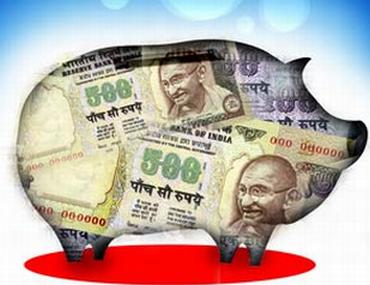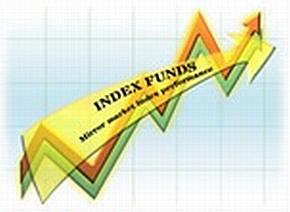
Mutual funds have traditionally been the most popular option for Indian investors looking for an exposure to equities. With the number of fund houses and schemes available, from diversified funds to sector specific funds, there is no shortage of options. But, now another investment alternative is gaining interest: exchange traded funds or ETFs.
But what does investing in an ETF entail and should one invest in mutual funds or ETFs?
An overview of ETFs
Very basically, an ETF is a mutual fund that can be bought or sold on an exchange. Globally ETFs can be passive or actively managed, but most ETFs available in India are passive.
What does a passive ETF do?
A passive equity ETF tries to track the performance of an underlying benchmark -- the benchmark could be NIFTY, SENSEX, or any other benchmark. The ETF will hold the same basket of stocks as the index, in the same proportion, giving you returns that are as close to the index as possible. It is similar in spirit to an index mutual fund, but there are very few mutual funds doing passive management in India and ETFs are really the place for passive exposure.
In the equity space in India, NIFTY BEES (by Benchmark Mutual Fund) is the best-known equity ETF. It aims to replicate the returns of the NIFTY. If you wanted to actually earn what the NIFTY returns, NIFTY BEES would accomplish that closely. There are other ETFs in the market as well: gold ETFs, sector specific ETFs, and SENSEX ETFs, most of which are passively managed. For the end investor then, it is a question of what should they go for: a passive ETF or an actively managed mutual fund.
The author is the co-founder of Forefront Capital Management (https://www.forefrontcap.com), a specialised portfolio management services firm providing equity investments based on quantitative portfolio construction. She can be contacted at radhika.gupta@forefrontcap.com.

The most important thing to realise is that a passive ETF will give you a very different set of returns than an actively managed mutual fund, and it's for the investor to decide what they want.
If you invest in NIFTY BEES, you earn almost exactly what the NIFTY returns. If the NIFTY is down 50 per cent, your portfolio will halve, and if the NIFTY is up 100 per cent, your portfolio will double. That is the aim of the fund, and to expect anything else would be unreasonable.
If the product loses money because the market is down, you cannot blame the ETF manager!
An active mutual fund, say a diversified equity fund, typically has the goal of beating a benchmark, NIFTY, SENSEX, etc. The performance is variable and depends on the fund manager's skills. A good fund manager should be able to beat the benchmark by 5 per cent over the long term. If you are looking for out performance to the benchmark, an active mutual fund is the place to go.
What makes more money in the long term?
The good mutual funds in India have done a good job outperforming the benchmark. Over the long run, they have delivered significant returns in excess of the benchmark after fees. That doesn't mean they always beat the benchmark, but over the long term, yes, they are a good equity investment.
Mutual funds are typically more expensive than ETFs. ETFs will typically cost in the range of 0.5 per cent to one per cent a year in management fees for a passively managed ETF.
Mutual funds will cost in the range of 1.5 per cent to 2.5 per cent a year for a standard diversified equity fund. The important thing then, is that a mutual fund should beat an ETF after fees.
Of course there are other fees involved in holding an ETF. For one, holding an ETF requires a demat account, like holding stocks, and there are demat charges and brokerage charges involved with holding and trading ETFs.
Liquidity
ETFs, because they are traded on a stock exchange, have provided investors complete flexibility. Now, with mutual funds also being traded on stock exchanges, this flexibility is available with mutual funds as well. Also, while investors have to incur exit loads at the time of redeeming investments in mutual funds, for ETFs they have to pay a brokerage to the stockbroker, along with other applicable charges (STT for instance), every time ETF units are bought or sold. For a trader who has frequent churn, an ETF is more cost effective, whereas for a long-term investor, mutual funds may be cheaper.
Mutual funds and ETFs both offer a varied range of offerings, although the mutual fund bouquet is larger. The most popular ETFs are the basic equity ETFs as well as gold ETFs. Mutual funds provide more variety in the equity space: sector specific funds, small-cap funds and style funds.
ETFs have a very narrow investment mandate, while mutual funds have a wider mandate to play with. In falling markets, mutual funds can move into partly cash, protecting your portfolio, while ETFs are by definition tracking the index.
What to choose?
Mutual funds and ETFs have a different investment objective and proposition, and the most important thing is for an investor to know what they are looking for and what they are getting into. Once you decide what you are looking for, making the ETF vs mutual fund decision is not difficult.
In general, an ETF is a great place to get simpler exposures like gold, and a mutual fund, if wisely chosen, a good place to get a more sophisticated exposure.
So, explore both the world of ETFs and mutual funds, understand the return profiles, liquidity offerings, and tax and cost implications, and make a sensible decision as to what's right for you.